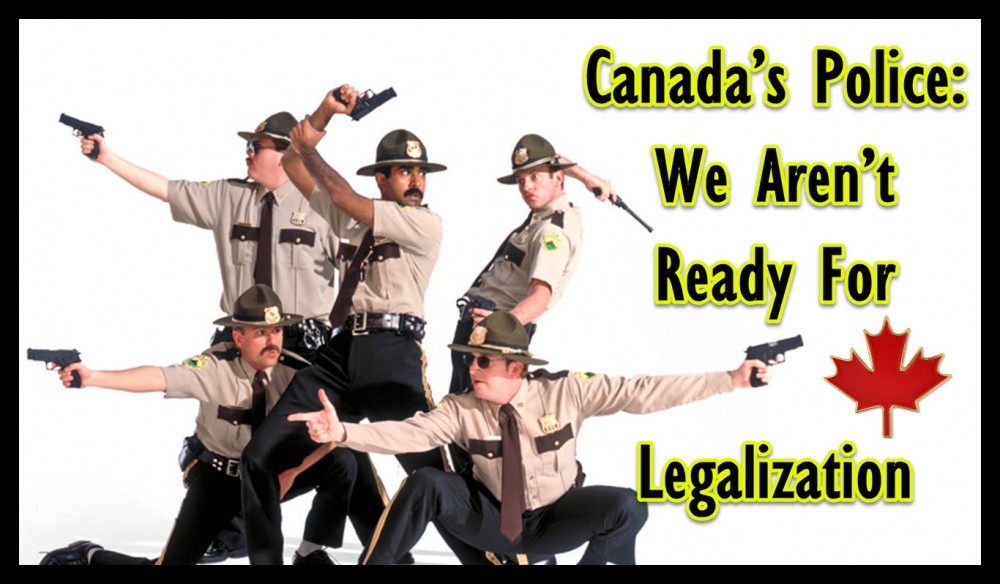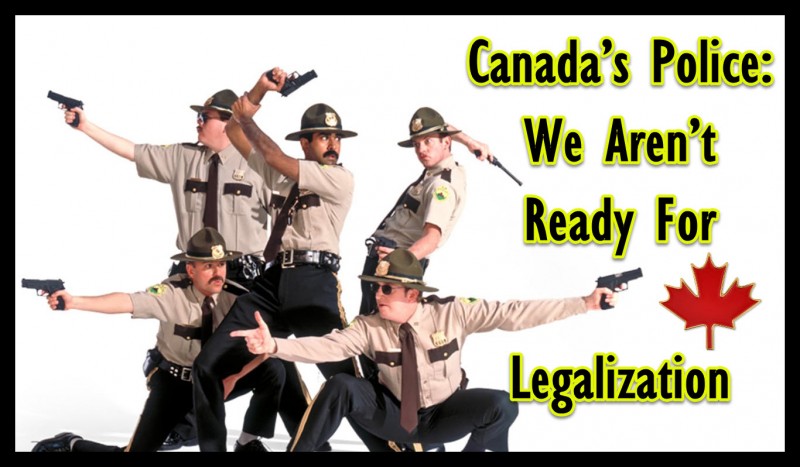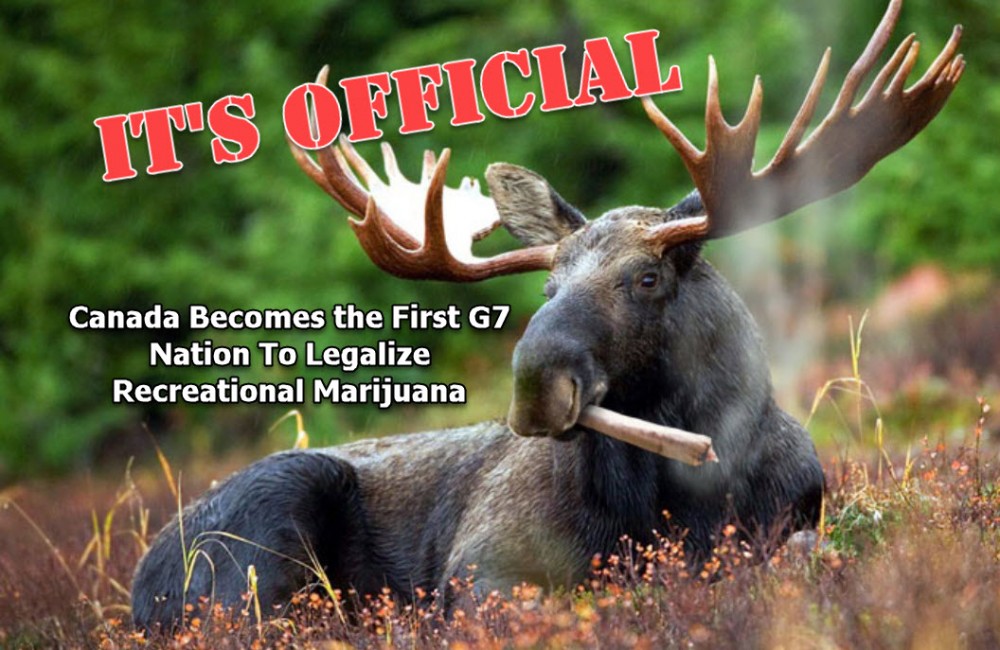Canada’s Police: We Aren’t Ready For Legalization

Everyone in Canada is gearing up for legalization this October, whether they like it or not.
According to the Canadian Association of Chiefs of Police (CACP), they will probably not meet their target of training 2,000 officers in detecting drug-impaired drivers once cannabis is legalized this fall.
But this isn’t news; last year, the agency, which represents around 90% of police agencies in the country, told the government that they needed more time to train their officers before legalization because they don’t know how to recognize drug-impaired drivers on the road. A spokesperson for the agency told the Canadian Press that only 733 officers have successfully completed the training since May, an increase from 665 in February. However, training will go on and the cops are confident in the process.
The International Drug Evaluation and Classification program started in Los Angeles back in the 70’s, and Canadian law enforcement agents still need to travel to the United States to complete the training. There, they are taught how to recognize signs of impairment through an individual’s vital signs, balance, coordination, and eyes. The $81 million being spent by the federal government for the drug recognition experts (DRE) training will continue over the next five years. They also launched a “Don’t Drive High” awareness campaign to caution Canadian citizens about the dangers of driving stoned.
In a year-end interview last year, Chief Rod Knecht of the Edmonton police force was asked if they would be ready for legalization. To which he simply answered, “No.”
“We’re not ready,” Knecht says. “You’d be hard-pressed to find any police service that’s ready right now.”
“I don’t think we fully realize and understand the consequences of this decision into the future and we’ll wrestle with this for a while,” he adds.
But this doesn’t mean that the CACP will be short of resources. “I believe it is important to clarify that Drug Recognition Experts are not the front-line officers trained to conduct Standardized Field Sobriety Tests (SFST) to spot drug-impaired drivers on the road, says Natalie Wright, CACP spokesperson. “DREs are further specialized to test drivers once they’ve already been stopped for a drug-impaired driving offence.”
Wright disclosed to the Daily Hive that as of April 2018 there were 13,000 trained SFST officers throughout Canada as well as 825 certified DREs. “Canadian police services are working diligently to increase the number of trained officers while ensuring that there is a strategic deployment of trained officers across each jurisdiction,” she says.
She adds that “the CACP wishes to assure all Canadians that failure to reach the estimated target of 2,000 DREs in Canada does not prevent the police from being able to detect and deal with drug-impaired drivers today and once cannabis is legalized on October 17.”
According to Mario Harel, CACP director, the police force will be using drug screening devices to help them with roadside testing. But as of now, “we await approval by the federal government as to which units will meet technical specifications and will be approved by the Minister of Justice and Attorney General of Canada,” Harel said. “Until this process has been completed, police services are unable to make purchases and train officers in their use.”
Harel also made the assurance that “regardless of the status of drug screening devices, their absence does not prevent us from being able to detect and deal with drug impaired drivers.” He added that CAPC is “very confident in our present processes knowing that they will continually improve with time as we build capacity.” They expect to have more than 7,000 new trained SFST officers throughout Canada in the next three years.
Individual police forces, provinces, and territories in Canada are conducting their own SFST trainings, which are standardized in accordance with the International Association of Chiefs of Police (IACP) standards and outlined in the Criminal Code regulations. The DRE training is made up of two parts – there is the 10 day classroom instruction which is then followed by 3-5 days of practical certification.
“There are a limited number of courses offered and a limited number of participants who can take part in the program,” explains Wright. “While police training programs have been ramping up, only so much could be achieved between the introduction of the legislation and its enactment on October 17.”
Her parting words should be in the minds of Canadians before and once cannabis is legalized. “We must all remember and continuously drive home the message that alcohol and/or drugs and driving don’t mix, period.”
OTHER STORIES YOU MAY ENJOY..
CANADA LEGALIZED RECREATIONAL CANNABIS, CLICK HERE.
OR..
THE CANADIAN CANNABIS MARKET, WHAT YOU NEED TO KNOW, CLICK HERE.








